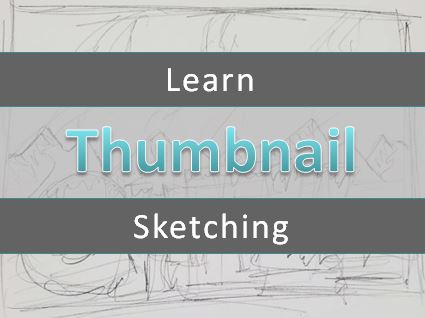How to Thumbnail Sketch
Artists use thumbnail sketching for very good reasons. They are a valuable tool for working through your rough ideas. Today you’ll learn how to do thumbnail sketching for beginners.
These rough sketches are very inexpensive in regards to both your time and money. And in many circumstances are the first time your ideas or concepts become a reality.
The use of the term dates back to the mid 19th century when artists made drawings the size of a thumbnail. You are not required to make your drawings that small to be considered a thumbnail sketch. But it could be fun to draw that small.
If you’ve never used this tool before, now’s a good time to give it a try.
* Some of the links in this post may be affiliate links. This means I receive small commissions for purchases made through these links at no extra cost to you.
Art Supplies
Paper
Pencil or pen
Colored pencils (optional)
Thumbnail Sketch Definition
Small sketches used to draw out multiple ideas very quickly.
In a sense, it’s like a shorthand for artists. Thumbnail sketches are a great tool to put your ideas on paper. It’s like a brain dump for artists.
What Are Thumbnail Sketches Used For
Thumbnail sketching can be used to figure out a layout. I use this quite a bit with my graffiti drawings to work through my ideas and come up with a layout that works.
It can be difficult to get all of the elements to fit into a drawing in a way that they all flow together. By doing some quick thumbnail sketches, I can work through several designs in a very short amount of time.
They are also good for coming up with ideas for drawings if you don’t have anything in mind. If you’re struggling to come up with an idea, just start drawing out a bunch of thumbnail drawings as quickly as you can.
How to Create a Thumbnail Sketch
You can create your thumbnail sketches on any type of paper, using any drawing utensil. However, pen or pencil are typically used. You can use scrap paper or a sketchbook. As well as anything in between. There really aren’t any rules to what supplies you should use.
They key elements to thumbnail sketching is that it’s done quickly and very loosely. You don’t erase or make corrections. And you can do as many of them as you need to draw. These tiny drawings should be completed in a matter of seconds.
Begin by drawing a box, or a series of boxes.
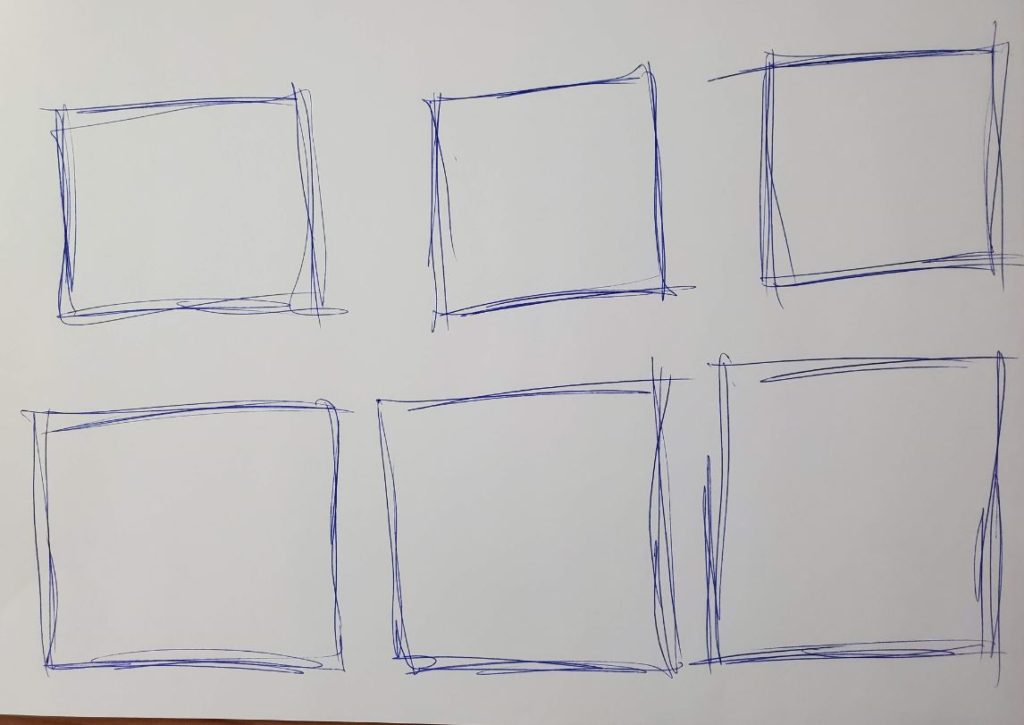
Then quickly sketch out a rough idea for your drawing.
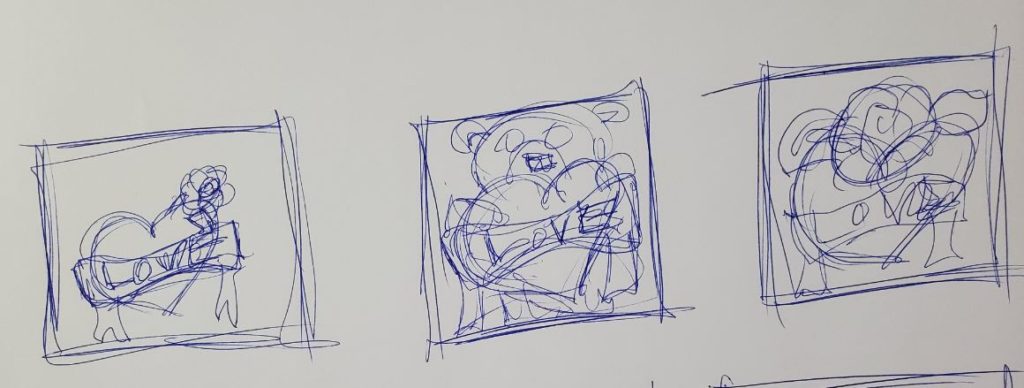
It’s best to do several drawings while making slight changes for each one.
Using Color
You could go in and quickly add some color to your drawings to help further develop your ideas.
But typically thumbnail sketches don’t involve the use of color. However, they are a tool and should be used as needed.
You can use colored pencils or color sticks to quickly rough in your color schemes. When adding color, you want to keep things loose and rough. Thumbnail sketches are not polished drawings.
They are simply meant to get some quick ideas on paper prior to working on your finished drawing.
Note Taking with Drawings
Thumbnail sketches can also be used as a way to take notes. Drawing is a great way to enhance memory recall. Our brains tend to retain the information from drawings better than just the spoken word.
Quickly draw out whatever it is you need to remember, combined with short written notes.
When using thumbnail sketching for note taking, you may want to make your drawings similar to doodles. This type of quick sketch would be beneficial for memory recall.
Thumbnail Sketch Examples
Since I’m getting ready to do a new graffiti drawing, I need to work through some ideas for how to lay it out. When doing thumbnail sketches it’s a good idea to have some sort of concept in mind. From there you can make any changes that come to mind.
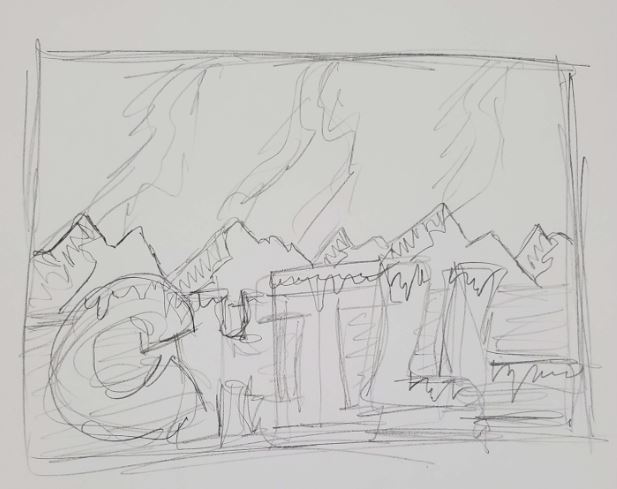
These thumbnail sketch examples only took a minute or two each to draw. They were done very quickly and loosely. The purpose is only to get some rough ideas on paper.
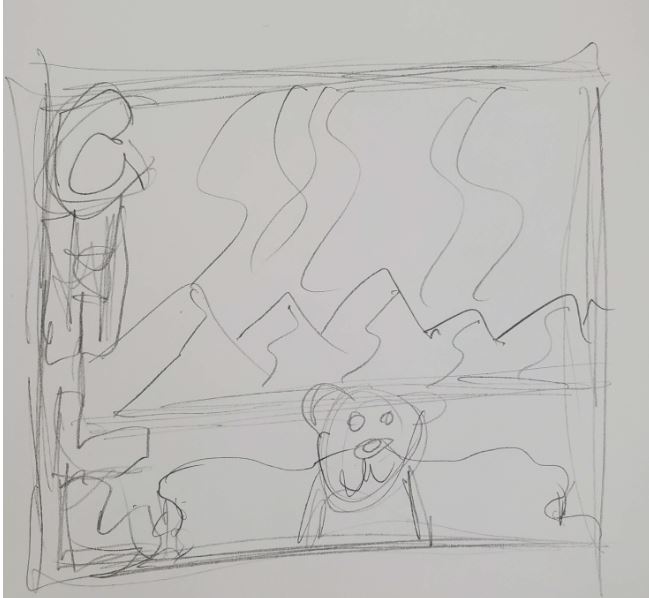
Before doing my actual drawing I’ll make several more thumbnail sketches to come up with a balanced layout for my artwork.
Thumbnail Sketching for Beginner Artists
As you can see there are plenty of opportunities to use thumbnail sketching. The more you do them, the easier they become.
And you can literally create them as quickly as your mind can produce the ideas. Once you have them sketched out, you can even go back and rework an idea to refine it a bit more.
Questions or struggles? Drop them in the comments and we’ll see if we can help you out.
Grab your FREE Guide to a Successful Artistic Journey

